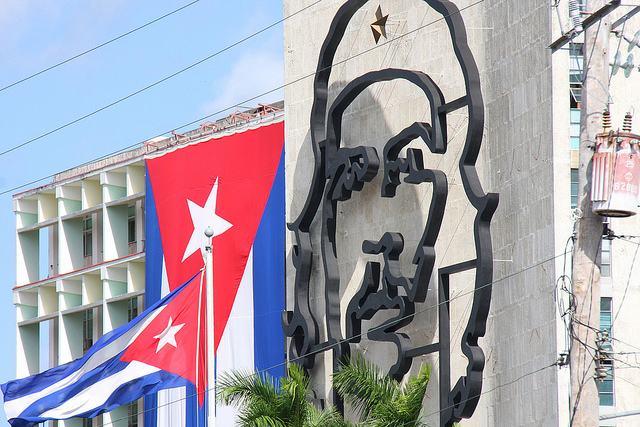- Debt deal with Cuba includes cancelling late interest calculated with huge 11% interest rate
£139 million of ‘made-up money’ will count as UK aid and contribute towards meeting the UK government’s target for spending 0.7% of national income on aid, documents released under the Freedom of Information Act have revealed.
Under an agreement with Cuba on its debt to the UK, £139 million of late interest will be cancelled, whilst Cuba has agreed to repay the £42 million which was lent originally, plus £21 million of contractual interest.
The late interest has been calculated using an annual interest rate of 11% since Cuba defaulted on the debt, far above the interest rate the UK government itself pays. The UK government has not received any payments on the debt since 1987, and there was no expectation that any of the made-up late interest would ever be paid.
Tim Jones, policy officer at the Jubilee Debt Campaign, said:
“The £139 million should clearly be cancelled as it is just phantom money based on ridiculously high interest rates. But to count made-up money as ‘aid’ means the impact of this is to actually reduce aid spending by £139 million.”

The deal will cost Cuba money as it had been in default on the debt since 1987. The debt comes from loans backed by UK Export Finance, the part of the government which facilitates loans to fund the purchase of UK exports. Following a campaign by the Jubilee Debt Campaign, the UK government revealed in 2012 that of the original loans to Cuba, almost half were for “boats and vessels” though did not specify whether these were for civilian or military use.
The UK government has refused to conduct a full audit of debt owed to UK Export Finance to discover how beneficial or not the original loans were. Calculations by the Jubilee Debt Campaign have identified that at least 20% of loans where debts are outstanding were for military equipment, including to dictators such as Saddam Hussain in Iraq, General Suharto in Indonesia and General Mubarak in Egypt.
Tim Jones continued:
“UK Export Finance has a history of lending for dodgy, damaging and corrupt deals. It should conduct a full audit of its debt, to identify past bad loans and how to stop making them in the future.”
Cuba has also reached agreement with 13 other Western governments on the same terms as the UK. $2.6 billion of late interest will be cancelled in total under the deal, all of which is likely to be counted as aid in the respective countries.
Tim Jones concluded:
“British people think UK aid money should be used to reduce poverty and inequality around the world. But too often it is driven by the interests of British companies at the expense of increased poverty and inequality.”
Between 2002 and 2013, $663 million of UK aid money went to the Private Infrastructure Development Group, which is tied to spending the money on Public Private Partnerships similar to the UK’s highly expensive Private Finance Initiative. Other aid money is being used to promote private schools in Africa and South Asia.
A review in 2012 found that of 117 aid contracts given in the previous 18 months 108 (92%) were for British companies and only one was awarded to a company from a developing country.